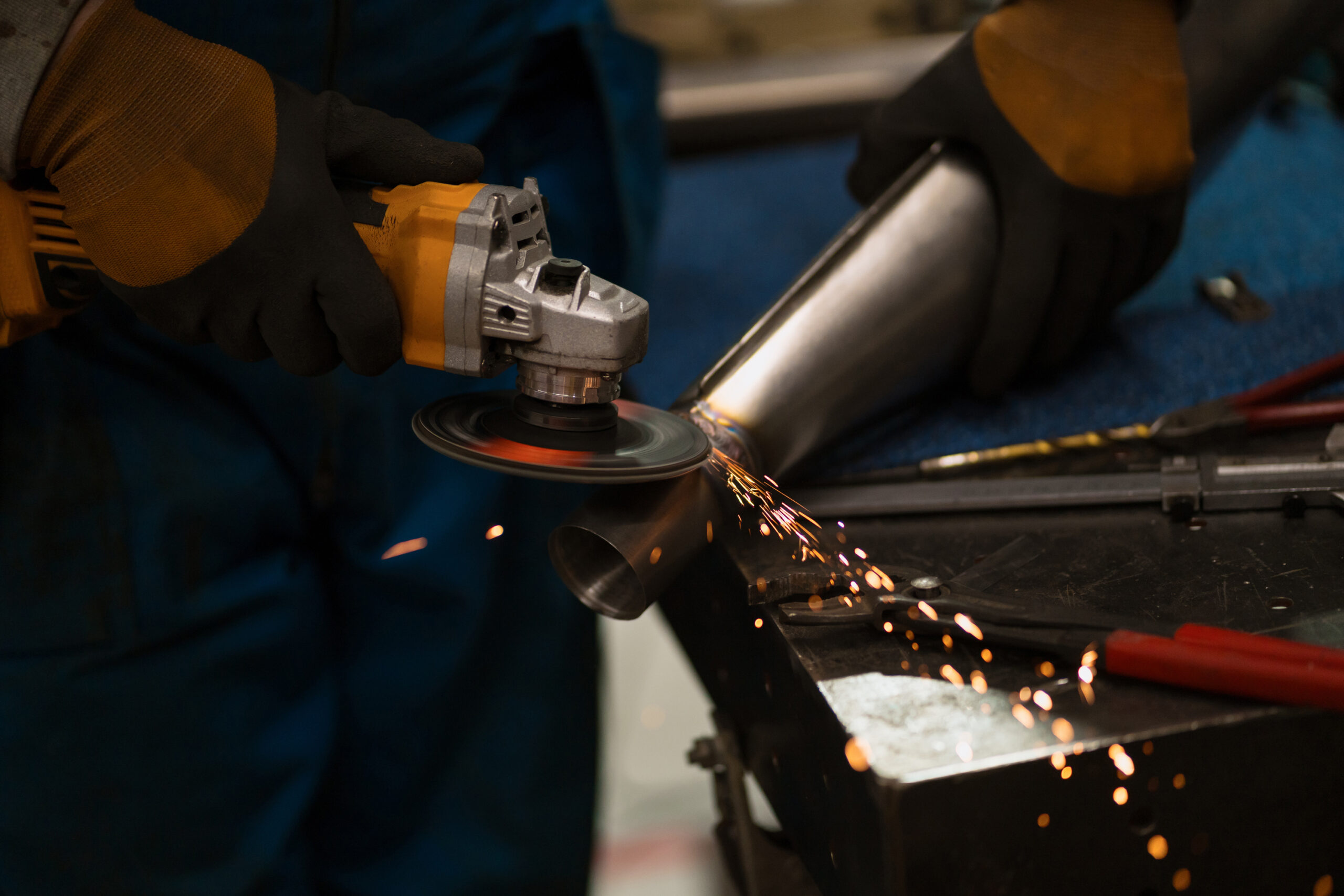Ferrous metals, primarily made of iron, form the backbone of many industries, from construction and automotive to aerospace and manufacturing. Ferrous metals are prized for their strength, durability, and ability to withstand extreme conditions. However, the properties of these metals can vary significantly based on their composition and the services provided to modify and shape them. Ferrous metal services play a critical role in shaping these materials into usable products, optimizing their performance, and ensuring they meet the demands of specific applications.
This article explores the different aspects of ferrous metal services, from material processing and fabrication to quality control and sustainability considerations, offering a comprehensive understanding of their importance in modern industries.
What are Ferrous Metals?
Ferrous metals are materials primarily composed of iron (Fe), often combined with small amounts of other elements like carbon, manganese, and chromium. The most common ferrous metals include:
- Steel: Made by adding carbon to iron, steel is known for its versatility and strength. There are various types of steel, including carbon steel, alloy steel, and stainless steel.
- Cast Iron: A group of iron alloys with a higher carbon content, cast iron is more brittle than steel but has excellent castability and wear resistance.
- Wrought Iron: Historically used for its malleability and resistance to corrosion, wrought iron is now mostly found in decorative applications.
The composition of ferrous metals allows for a wide range of mechanical properties, making them suitable for everything from structural applications to heavy-duty machinery. However, to reach these final, usable forms, these metals often require specialized services.
Key Ferrous Metal Services
Metal Fabrication
One of the most crucial ferrous metal services is metal fabrication, which involves shaping and assembling metal components through processes like cutting, welding, bending, and assembling. Fabrication services are essential for turning raw ferrous metal sheets, bars, or rods into finished components.
- Cutting: Whether through laser cutting, plasma cutting, or traditional methods like saw cutting, the first step in fabrication is typically shaping the metal into manageable sizes.
- Bending and Forming: Once cut to size, metal parts may need to be bent or formed into specific shapes. This is often done using press brakes or rollers, depending on the material thickness and shape required.
- Welding and Joining: In many cases, ferrous metal parts must be welded together to form larger structures. Welding services, such as MIG welding, TIG welding, and arc welding, allow for strong, permanent joints that ensure the strength and integrity of the final product.
Metal Machining
For high-precision applications, ferrous metals often undergo machining, which involves removing material from a workpiece to achieve the desired shape and surface finish. Machining processes like milling, turning, and drilling are used to create intricate components that require tight tolerances and a high degree of precision. In the aerospace industry, for example, ferrous metals are often machined into parts like landing gears, engine components, and structural elements. These parts require exceptional precision and consistency, making advanced machining services essential.
Heat Treatment
Heat treatment is a vital ferrous metal service that alters the physical and mechanical properties of metals by heating them to high temperatures and then cooling them under controlled conditions. This process can increase hardness, strength, and ductility, depending on the treatment method used. Common heat treatment processes include:
- Annealing: A process that softens metals and relieves internal stresses.
- Quenching: Rapid cooling of a heated metal, often in water or oil, to increase hardness.
- Tempering: Heating a quenched metal to a lower temperature to reduce brittleness while maintaining hardness.
- Case Hardening: A method of hardening the surface of ferrous metals while maintaining a tough interior.
Surface Treatment and Coating
Ferrous metals are often susceptible to corrosion, especially in harsh environments. To mitigate this, various surface treatments and coatings are applied to improve corrosion resistance, increase durability, or enhance appearance. Some common surface treatments include:
- Galvanizing: Coating steel with a layer of zinc to prevent rust and corrosion.
- Powder Coating: A method where dry powder is applied to the metal surface and then cured, providing a durable, corrosion-resistant finish.
- Electroplating: A process where a thin layer of metal (often chromium or nickel) is deposited onto the surface of a part to improve wear resistance and appearance.
Metal Recycling
Sustainability is a growing concern in the ferrous metal industry, and Scrap Metal Recycling plays an essential role in reducing waste and conserving resources. Ferrous metals are highly recyclable, and through processes like shredding, melting, and reprocessing, used metal components can be repurposed into new products. Recycling is not only cost-effective but also environmentally friendly, as it reduces the need for raw material extraction and energy consumption. Companies like Gold Star Metals are committed to implementing sustainable practices by offering scrap metal recycling services and ensuring that ferrous materials are reused efficiently.
Why Are Ferrous Metal Services Important?
Ferrous metal services are vital for several reasons:
- Customization: Industries often require specialized metal components tailored to their exact needs. Ferrous metal services allow companies to customize materials for strength, durability, and form.
- Performance: With processes like heat treatment and surface coating, ferrous metals can be enhanced to meet specific performance criteria, such as high tensile strength or resistance to wear and corrosion.
- Sustainability: The ability to recycle ferrous metals reduces waste, lowers costs, and minimizes the environmental impact of mining and raw material extraction.
- Economic Impact: Ferrous metals are critical to the global economy. Industries ranging from construction to aerospace depend on ferrous metal services to manufacture the parts and products that keep businesses running.
Conclusion
Ferrous metal services are fundamental to transforming raw materials into functional, high-performance components used across a broad spectrum of industries. Whether it’s through fabrication, machining, heat treatment, or recycling, these services ensure that ferrous metals meet the rigorous demands of modern manufacturing and construction. Companies like Gold Star Metals provide expert services in this space, offering everything from custom metal fabrication to sustainable recycling solutions. By leveraging these services, businesses can ensure the reliability, efficiency, and longevity of their products while meeting the needs of an ever-evolving global market.




